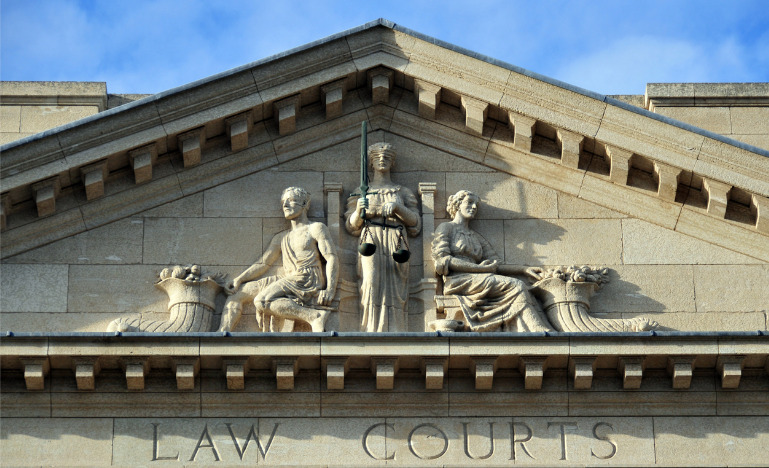Loosening the purse strings
Is Canada's fiscal largesse generous enough to fix the justice system?

Canada's first budget in two years went big. It also proposes one of the most significant investments in the justice sector in recent memory. But for a system where the problems run deep, will it enough?
Finance Minister Chrystia Freeland's lengthy spending document achieves that feat by making good on several promises made over the years.
Budget 2021 commits, through to 2026:
- $216 million in new spending on youth justice services funding
- $40 million for drug treatment courts
- $22 million for a "Racialized Communities Legal Support Initiative"
- $75 million to improve access to justice for Indigenous peoples and expand prosecution capacity in the North
- $7 million to improve data collection in the justice system, including data on race and Indigenous status
- $27 million for legal aid supports to asylum seekers.
- $88 million to expand and modernize the pardon process
- $49 million to create 13 new superior court positions, and one new spot on the Supreme Court of Newfoundland and Labrador
- $18 million to re-constitute the Law Commission of Canada
- $19 million to address judicial misconduct, and to beef up investigations into judges accused of wrongdoing
- $5 million in immediate funding for federal courts still grappling with the COVID-19 pandemic
- $85 million for free legal advice and legal representation for victims of sexual assault and intimate partner violence.
All told, that's nearly a half-billion dollars, parcelled out over five years, for initiatives to reduce court delays and expand access to justice.
Canadian Bar Association President Brad Regehr says the budget contains "several proposals for action on justice system issues that the CBA has been advocating for: for example, reinstating the Law Commission of Canada, allocating money for new judges, expanding drug treatment courts, and making it easier to apply for a pardon."
Michael Spratt, a criminal lawyer and partner at Abergel Goldstein, approves in particular of the pardon measures. "It would be better to make them free and automatic," he says, but adds they signal a step forward. Dropping the euphemistic use of the term "record suspension" to describe a pardon is also an improvement, he noted.
The budget also devotes an entire chapter on "Keeping Canadians Safe and Improving Access to Justice."
"More money on the table for access to justice is always good news," says Jérémy Boulanger-Bonnelly, a doctoral candidate at the University of Toronto Faculty of Law who studies access to justice issues.
But, as Regehr notes, "historically, governments have under-spent on justice, so there's almost always room for more spending – and smarter spending."
Systemic under-funding, especially on community initiatives, is longstanding — and it's self-injurious, he says. "Money spent on justice is not an expense; it's an investment," he says. "Because we know from various studies that every dollar invested in justice initiatives results in greater economic gains for our governments and for society at large."
Boulanger-Bonnelly says the estimated return on a dollar invested in legal aid amounts to $6 saved elsewhere.
Nearly $30 million is directly targeted at community initiatives and legal aid, but the vast majority of the funding goes towards court services, appointing judges, consultations, and hiring prosecutors.
A significant amount of the budget funding for legal aid goes to refugee claimants. The Ontario Bar Association and the CBA have been clamoring for this funding in recent years. And Spratt notes funding for legal aid in the immigration and asylum systems is "desperately needed," adding "so is money for criminal legal aid."
"I would say that the main point that seems to be missing, for me at least, is new funding for provincial legal aid," Boulanger-Bonnelly says.
Though legal aid falls under provincial jurisdiction, Ottawa provides some funding to the provinces and territories to run their programs. "Federal government could play an important role here, in partnership with the provinces," he says.
"More generally," Boulanger-Bonnelly says, "we need to keep in mind that money is not the ultimate solution to access to justice issues."
The system also needs a "culture shift" that involves more public education, more empowerment of individuals in the justice system, and more "innovation in the delivery of legal services, as well as community-based initiatives."
Regehr adds that COVID-19 has highlighted "the need for big-picture innovations in the justice systems."
Part of the lag accumulated over the years is due to an obvious lack of data to inform how to fix these problems. Our system of justice doesn't collect data based on race and Indigenous status, and overlooks other factors as well, like gender identity. It can be hard to know where the problems truly lie.
More funding to collect that data — distributed among the RCMP, Justice Canada, and Statistics Canada — "will provide us a more solid foundation to work with and make data-driven decisions," Boulanger-Bonnelly says.
The budget also dedicates money for a "National Action Plan to End Gender-Based Violence," which feels particularly pertinent amid a rise in femicides in Canada.
"I am glad to see that the support will primarily go to community-based organizations," Boulanger-Bonnelly says. He points to Juripop, which offers free or low-cost legal support to people who need it — particularly victims of intimate partner violence — as a good contender for that funding.
"There is more money here than there has been in a long time and some good initiatives," Spratt says. "But the government is going to need to stick the landing on this stuff, or else it is just expensive theatre."


